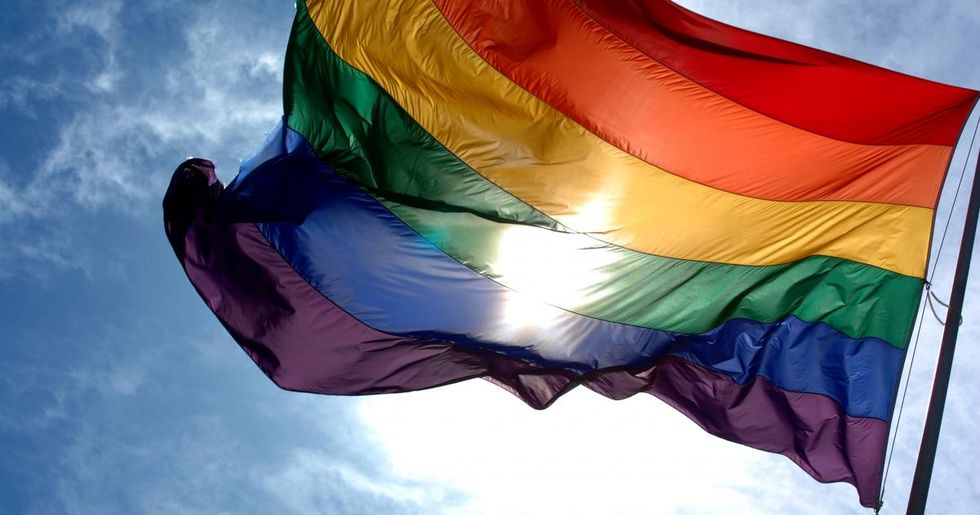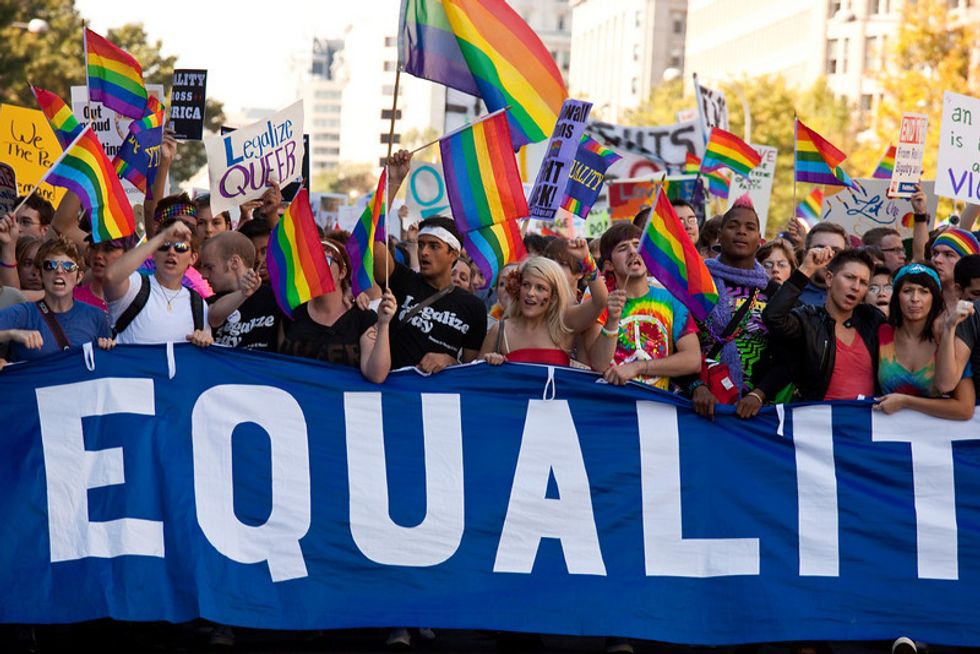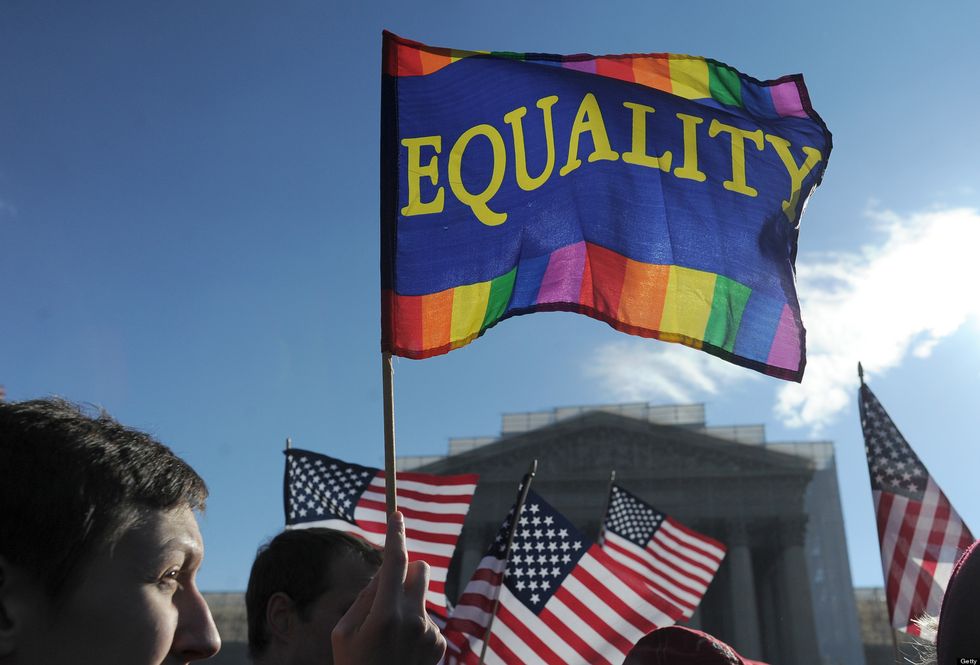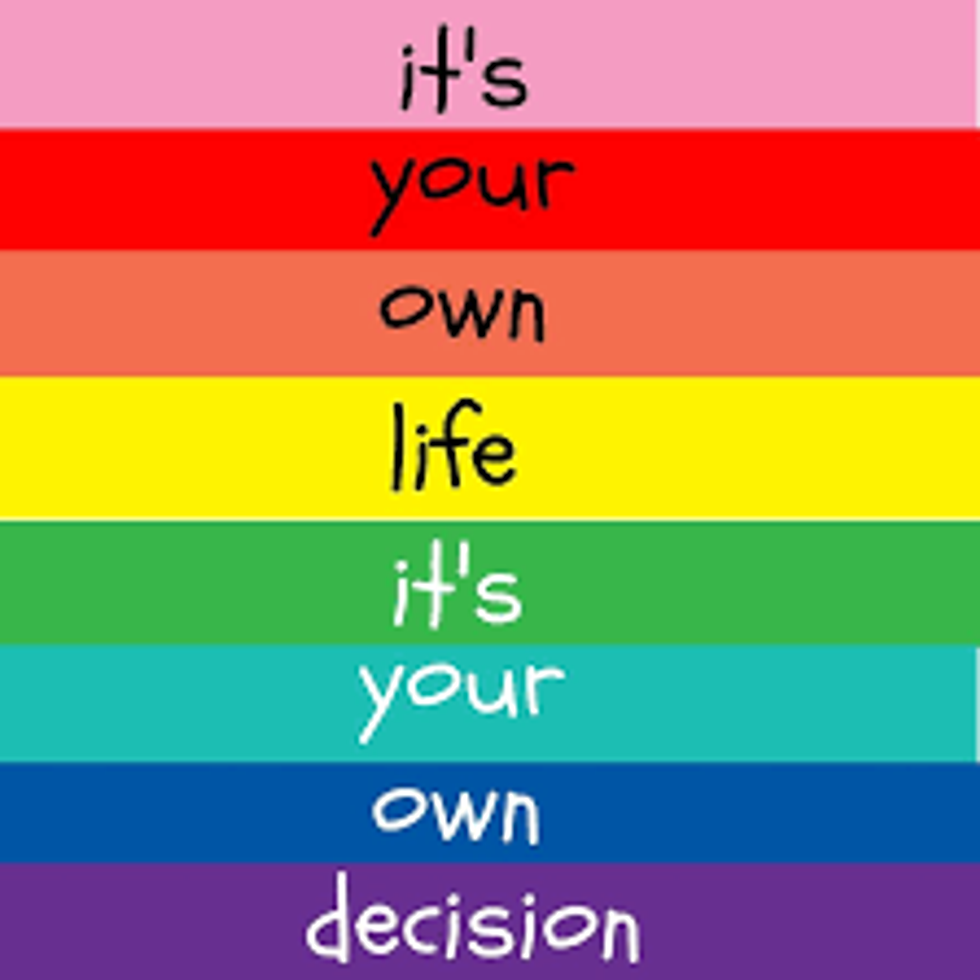As you may or may not remember from taking US History in school, America has been known for social change, particularly in the past two centuries. From the many protective regulations brought out during the Progressive Era to the racial equality brought out during the Civil Rights movement, the US has changed its social structure and/or its social views numerous times in the wake of a mass movement. Social changes in the United States have generally been celebrated, as we recognize the Civil Rights Movement's anniversary every year since it memorializes the progression of American history and the freedom of an integral social group in our nation.
The most recent social change in this nation has resulted from the LGBQT/Pride movement, when the Supreme Court ruled that denying marriage licenses to LGBQT couples violates the Fourteenth Amendment to the Constitution in 2015.
Like many social movements in the United States, the Pride movement is widely celebrated, with many flying rainbow-colored flags at large parades in cities such as New York every year or so. Many Americans cheer on the fact that those of LGBQT status are now treated equally as others as they are legally allowed to marry.
But EVERYONE under LGBQT status treated the same? Did the equality achieved in the Supreme Court's 2015 decision bring out equal treatment towards all?
It seems that the legal status brought out during the equality movement can only go as far as a Supreme Court decision would allow- it allows all of LGBQT status to be treated equally under the law, but does not give them a rite of passage for full social treatment. It seems that the issue of income equality applies to the LGBQT movement as well. While those of LGBQT status who are wealthy are reaping equal social treatment, those who are not wealthy are still discriminated against.
First and foremost, the wealthy are given more sympathy then the lower and middle classes. Middle and low-income LGBQT residents are more often socially shunned. For the past few years, TV producer John Quinones has been directing a series called What Would You Do, where he has set up a scene in public relating to modern issues such as abortion, income equality, and LGBQT rights, and showcase bystanders' reactions to the series. A handful of his episodes involved a gay couple or child, and bystanders' reactions to the scenes were mixed from episode to episode. Unsurprisingly, the reactions of others were dependent upon the appearance and outfits of the subjects. During scenes that the LGBQT subject was nicely-dressed and appeared wealthy, the bystanders would be more sympathetic towards him or her. However, during episodes where the subject was casually dressed or didn't appear to be of wealthy status, the subject would not gain as much support from bystanders, as the bystanders would generally chuckle and disagree with the subject's viewpoints. The scenes in John Quinones' New Jersey-based show is just an example of how society is. It tends to sympathize with people of affluent backgrounds, while it also tends to shun people of less affluent backgrounds. Therefore, any beliefs that those of high income hold, even if they contrast with the views of others, are generally more admissible to others. However, that is not the case with others as those not of high income as they are held to more rigid standards in terms of beliefs. Therefore, if someone is of LGBQT status, it is nor surprising that he or she will get more sympathy if he or she is from an affluent background.
The workforce is another discriminatory force against people of LGBQT status who are not wealthy. This applies to lower-wage jobs taken up by young adults, as class differences already affect wages of adults regardless of their sexuality. According to a 2015 article from The Atlantic, the salaries of straights ages 18-21 working lower-wage jobs vary by only 8% on average between workers of different backgrounds, however the salaries of people of LGBQT status vary by over 20% on average between different backgrounds. The large wage difference amongst people of LGBQT status also comes from the increased sympathy and trust that people have towards the affluent. Due to society giving more sympathy to the affluent, especially to those with different belief systems, it is no surprise that they would get paid or compensated more for the same type of job than the poorer.
It seems like the issue of income equality is spreading into other issues such as LGBQT rights. Not only are they enjoying a much higher quality of life and hoarding a majority of the incomes in the United States, they are enjoying and hoarding much more freedom earned through movements like the LGBQT movement. It seems that this movement was a success in earning the LGBQT equality, but it was really only a success to some.



















